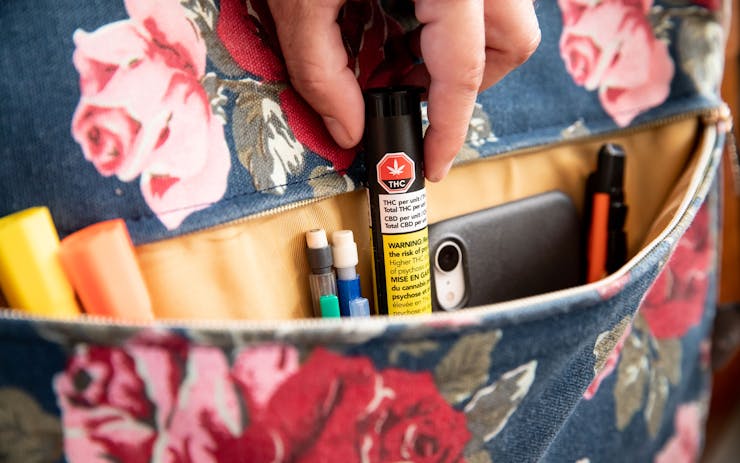Cannabis is legal for adult recreational use now, but that doesn’t mean you can consume it anywhere.
So, if you’re heading off to university or college this fall and want to know that what you can and can’t do on campus, here’s a selection of current policies at Canadian postsecondary institutions.Join the Leafly Canada Community
Cannabis and Minors
In practice, universities have turned a blind eye to student cannabis use for decades, but you won’t find a campus policy that’s willing to contravene the law. Students below the legal age in their province (18 in Alberta, 19 everywhere else) are not allowed to possess or consume cannabis on campus—or anywhere else.
Smoking on Campus
The University of British Columbia’s Vancouver campus acknowledges that dude, it’s BC, by allowing smoking outdoors on campus—as long as you’re not near a door, air intake, bus shelter, UBC vehicle, or residence. At the school’s Okanagan campus, cannabis smoking is expected to take place within designated “smoking gazebos.”
Similarly, smoking and vaping cannabis is permitted at select University of Alberta locations, although the designated spots read just like the directions pot-smoking students would’ve given in the pre-Prohibition era, e.g. “meet me near the parking exit” or “behind the library.”
The University of Victoria goes the distance for pot-smoking students by providing two designated cannabis smoking benches. Just look for the green stripe, and enjoy your break. Other campuses that provide designating toking areas include: Niagara College and Cape Breton University.
It’s worth noting that the majority of Canadian campuses are completely smoke-free (not that you’d know it to walk through many of them), while a few prohibit cannabis smoking, even while providing designated tobacco smoking areas (we see you Brock and Mount Royal universities).
Possession in Residence
They may be cagey about letting you consume it, but the majority of residences allow for the possession of cannabis in residence. As at UBC and Brock, you’re typically required to store it carefully and avoid making a stink.
Edibles in Residence
Ryerson University’s comprehensive cannabis policy distinguishes inhaled modes of consumption, such as smoking and vaping, from ingested modes, such as edibles. While smoking and vaping are prohibited anywhere on the Ryerson campus, students are permitted to otherwise ingest cannabis within the bounds of the law. They are not, however, allowed to make their own edibles in residences.
The University of New Brunswick has a similar policy, while the University of Waterloo doesn’t say anything about ingested forms of cannabis in its policy, only specifically banning smoking and vaping. Meanwhile at UBC, the powers that be don’t want to come right out and say you can consume edibles on cannabis, but they will say that the answer is not no: “There is no general prohibition on the consumption of cannabis edibles on campus.”
A Safe Space to Land
Too high to manage? The University of Calgary operates a judgement-free safe zone for students who have taken things a little too far. Initially offered as a recovery space for drunk students, upon legalization, U of C added medical support for cannabis overconsumption.
Growing Cannabis in Residence
This is a hard no everywhere we looked, but if you’re determined to grow a cannabis plant on campus, there are options: consider enrolling in Niagara College’s commercial cannabis production certificate program, where you can tend to plants within the CannaBunker, a secure designated growing and research facility. The University of Guelph also maintains growing and tissue culture facilities.
Full Policy Details
The information in this article represents a selection of policies from the hundreds of public postsecondary institutions across Canada. For complete details on your school’s rules, google the name of your institution plus “cannabis policy,” ask a don or a student advisor, and remember: policies do change.
Whether you’re a keener for the rules, or just want to know exactly how you’re breaking them, it’s on you to stay up-to-date.





